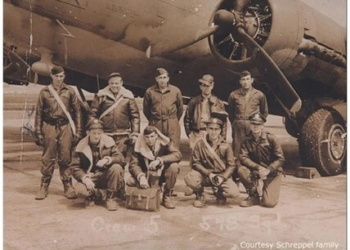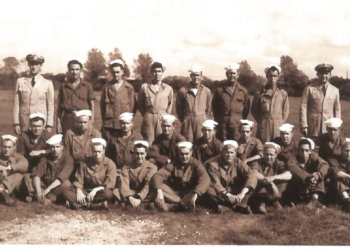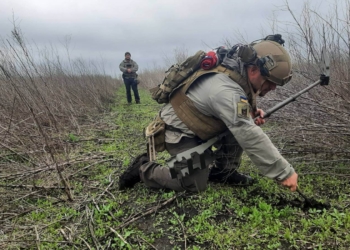Education benefits are a powerful tool for military recruiters. But sitting in a traditional classroom doesn’t appeal to every veteran. In fact, the Department of Veterans Affairs reports 15% of veterans chose vocational, technical, or nondegree programs.
A variety of options and interests
John Francis Bragoli, who served as a Marine from 2008 to 2012, pursued a few career fields. Before enlisting, he did auto body work; while serving as a mortarman, he discovered a knack for cutting his buddies’ hair, giving trims every Sunday while deployed. When he returned to Long Island, New York, after his service, he initially went back to auto body work. Wanting to broaden his skillset, he went to Lincoln Tech’s Queens campus to study automotive technology.
“It’s hard to learn when you’re working,” Bragoli said. “Especially when you have bills and stuff and want your free time.”
READ: GI Bill users face new requirements to receive payment
The housing allowance provided by the Post-9/11 GI Bill made it so he could focus on school.
After his 2018 graduation from Lincoln Tech, Bragoli had a year of formal barber training at the Beauty & Barber Institute of New York on Long Island, graduating in 2019. Having discovered a love of learning, he then enrolled in the computer technician networking specialist program at Hunter Business School. He found a job in that field after graduating in 2021 and enjoyed it. But just a month in, the Metropolitan Transportation Authority called about a test he took in 2017 and offered him a track worker position. Bragoli said he plans to stay in that job until retirement.
Cooking shows to culinary school
Kristina Houston served in the Army for nearly 25 years before retiring as a sergeant first class in 2016. During a 2015 deployment to Pakistan, she applied to the Culinary Institute of America’s San Antonio, Texas, campus. She was ready to leave behind information technology and the pressure to keep up with certifications and new products.
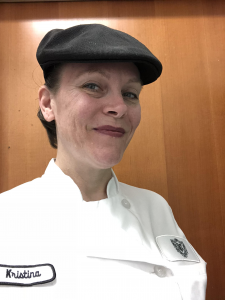
“I’ve always loved cooking and cooking shows,” Houston said. “I wanted to do something I like to do.”
Houston was ready to start classes in January 2017, but her mom was diagnosed with cancer.
“That put everything on the back burner,” she said.
She took her mom, who has now been cancer-free for four years, to treatment and worked at the post office until she began culinary school the following January.
Cooking shows didn’t fully prepare Houston for everything they covered in the 18-month program — things like identifying different cuts of meat and how to separate them or the process of preparing seafood for cooking. Her internship at a country club taught her the importance of timing in meal preparation, and volunteering at school events allowed her to rub elbows with celebrity chefs.
After graduating, Houston moved to Texarkana to be with her now-husband; shortly after, COVID-19 caused many restaurants to close or reduce staff. For now, Houston incorporates what she learned into her home cooking but would like to open a café or bistro, something with a “comfortable, homey setting,” she said.
Remaining on the front lines
Sam Tinelli spent five years as a hull maintenance technician in the Navy, separating in 2006 as a petty officer second class. He didn’t know what he wanted to do before joining but got into firefighting during his service and decided to continue when he returned to New York. Tinelli became a volunteer firefighter but found out he needed to take a test and be a certified emergency medical technician to be appointed to the professional fire academy.
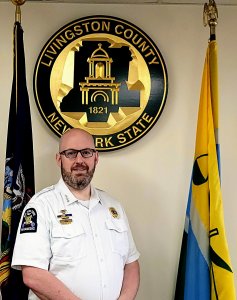
He took the firefighter exam and fell in love with working as an EMT. A community college owns the county’s public safety training facility, so Tinelli was able to use his Montgomery GI Bill benefits. After two years as an EMT, he returned to the school to take the paramedic course.
Today, Tinelli is the chief paramedic for Livingston County EMS. He has served as a flight medic and is working on a bachelor’s in emergency management service, taking advantage of a program providing free tuition to veterans at State University of New York campuses. And he makes a point of hiring veterans – so far, they make up one-tenth of his force, with every branch except the Space Force represented.
Tinelli also credits age with making him a better student.
“When I was younger, my attention span was on the rough side,” he said.
Bottom line: Utilize your benefits
The best advice these veterans had to offer was to not let education benefits go to waste: Don’t let them expire, and think about what you want before you enroll. Even if a classroom setting isn’t for you, the possibilities are endless.



















